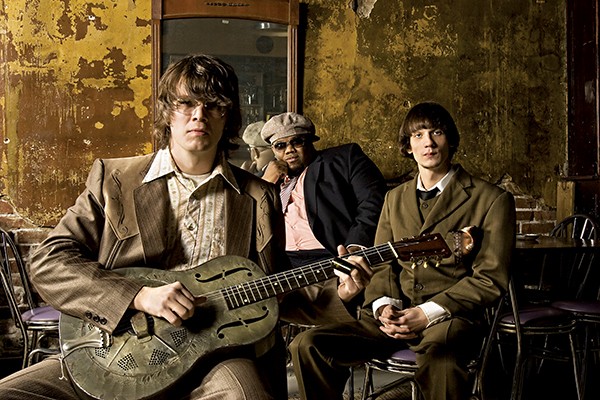When songwriter Jim Lauderdale takes the stage at the new listening room in the Old Dominick Distillery this week, it will renew a long but under-recognized relationship he’s had with Memphis.
While he’s played gigs here since the early 1990s, his ties to the city go deeper.
That becomes obvious as he lists some of the Memphians he’s worked with, including drummers Chad Cromwell and Greg Morrow and banjo player Richard Bailey. But sessions at the late Jim Dickinson’s Zebra Ranch Studio in Mississippi were what led him even deeper into the Memphis Sound. After cutting his Black Roses album, written in cahoots with former Grateful Dead lyricist Robert Hunter, and featuring Cody and Luther Dickinson, David Hood, and Spooner Oldham, he ran into Luther in Nashville.
“I was intending to do a country thing at the old RCA Studio A the next day,” he recalls, “and I thought it was an omen when I ran into Luther. I said ‘Hey, let’s check and see if Cody’s available.’ He was, and we got some other guys together, and were about halfway through that album when Luther said, ‘Man, you really ought to finish that soul stuff at Royal [Studios].’ So, I flew in, and Boo [Mitchell] let me use the old control room to write. I went in the next day, and there were Luther and Cody, Boo, Alvin Youngblood Hart, and Charles and Leroy Hodges. After the first song went down, I finally relaxed — I was terrified of working with these great guys!”
Those sessions, begun in Nashville and finished in Memphis, became the double album, Soul Searching, with a disc named for each city. The “Memphis” slice of the record features songs that, despite Lauderdale’s signature alt-country baritone drawl, evoke nothing so much as classic 1960s horn-driven soul. But that shouldn’t come as a surprise to his fans. Lauderdale has always had eclectic influences. Early in his career, he dove deep into bluegrass, harmonizing with Ralph Stanley and recording his first (still unreleased) album with mandolinist Roland White. He’s also toured and co-written with Nick Lowe and Elvis Costello. The common thread was a love of beautifully crafted songs.
A few years ago, Lauderdale found himself in London. “I wanted to go to a different place and just kinda catch the vibe over there. Like I do when I come to Memphis. I just kinda soak in something that’s in the air.” He cut a record with Lowe’s touring band and co-producer/engineer Neil Brockbank, but it sat on the shelf before being released last year as London Southern. The results, like Lauderdale’s songwriting itself, shied away from the obvious. Instead of nods to Liverpool or London, what emerged was, well, more soul music. “Those musicians over there grew up listening to the same thing,” notes Lauderdale. “They just live in a different place. And they’re really great players.”
His work in London, oddly enough, brought him around yet again to the Bluff City. “I got to co-write with Dan Penn. He’s a hero of mine, and we have a couple co-writes on London Southern. That’s another guy who I really wanna hook up with and write some more.”
It’s not that Lauderdale has moved away from his roots in classic country, bluegrass, or folk. It’s more that he sees all of it as a continuum of the American songwriting tradition. As an important figure in the Nashville-based Americana Music Association (AMA), he applauds the inclusion of soul in the “Americana” category, by both the AMA and the Grammys. And he applies this hybrid approach to his own work.
Referring to more (still-unfinished) sessions he did at Royal Studios last year, Lauderdale notes, “We ran out of time on this batch, but sometime I wanna come back and also add some pedal steel guitar to some things. Kinda do that country-soul blend.” And, he adds, he wants to work again with Memphis musicians. “There seems to be a camaraderie and not a competitive thing going there. The musicians that I’ve met are just real. They’re into the music and not overly concerned about the superficial stuff.”
